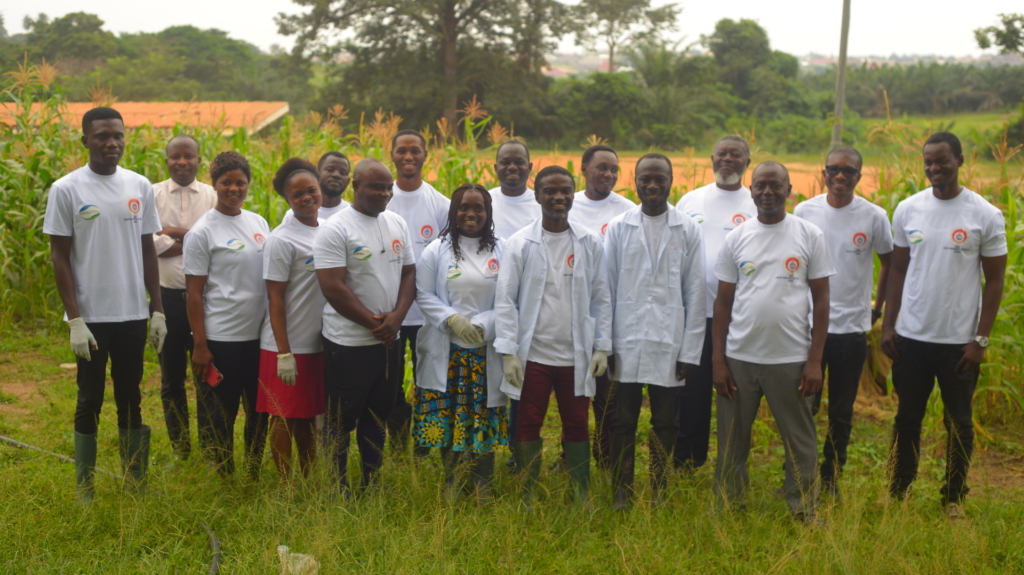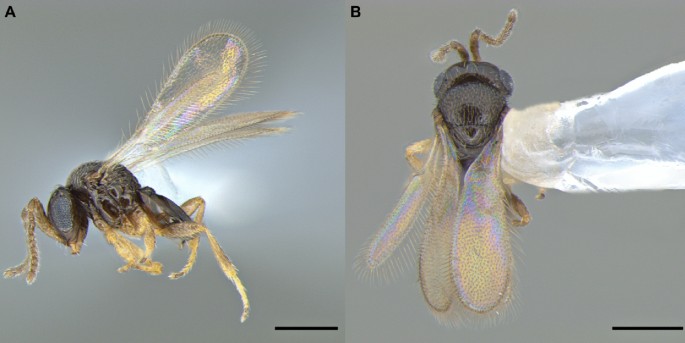The fall armyworm which was accidentally introduced in Ghana in 2016 poses a threat to sustainable maize production and food security in Ghana and Africa.
In 2017, Ghana had FAW-induced yield loss in maize of 27% translating into an economic loss of US $177 million.
While some level of control has been achieved in Ghana using synthetic insecticides, these chemicals are associated with human and animal poisoning.
They can also lead to the destruction of beneficial insects such as pollinators, pest resistance, and contamination of water bodies as well as many other ecological problems.
To sustainably manage FAW, Scientists at the Crops Research Institute have been exploring other management tactics other than synthetic insecticides.
Biological control using natural enemies known as parasitoids which are mainly parasites which eventually kill the host they feed on offer an ecologically sustainable means to manage FAW.
This project started in January 2020, is dubbed, Integrated Management of fall armyworm for sustainable food security in Africa.
It is funded by the Korea-Africa Food and Agriculture Cooperation Initiative (KAFACI).
The project is aimed at searching for biological control agents that could be mass-reared in the lab for field release to control fall armyworm.
The scientists have therefore found a natural enemy scientifically known as Telenomus remus.
The insects which have about 90 percent efficacy have been mass-reared in the lab and are ready to be released in maize farms to control fall armyworm attacking maize.
Project lead, Dr. Blankson Wadie is hopeful the intervention will lead to a drastic reduction in the fall army worm population.

He hinted at expanding the exercise to other areas of the country.
“As we start releasing today, we’ll be developing a calendar to find fall armyworm hotspots or farmers' fields. When the farmer gives us permission, we’ll do the release,” he said.
Latest Stories
-
Richard Ndignan: United States of Africa – A call for continental rebirth and unity
19 minutes -
Hoffman Laboratories boosts maternal care at Ridge Hospital with equipment donation
33 minutes -
One in three babies born to HIV-positive mothers at risk of toxoplasmosis, KNUST study reveals
55 minutes -
Erroneous to think my role as Torkornoo’s lawyer in injunction application against probe affect optics – Godfred Dame
1 hour -
Suspened CJ Torkornoo is merely barking – Ansa-Asare on injunction to stop removal probe
1 hour -
Ghana Athletics sets roadmap for junior and senior athletes ahead of August nationals
2 hours -
You will not lose any value after restructuring of MobileMoney Limited – MTN Board Chair assures shareholders
2 hours -
Decongestion exercise is long-term, not temporary – Accra Mayor
2 hours -
Joy Prime’s Big Chef Junior Team surprises Serwaa Bonsu at school
2 hours -
Ag. NPA CEO pays courtesy call on former US Ambassador
2 hours -
Ghana Immigration Crackdown: Deportation of undocumented foreign beggars
2 hours -
Cedi appreciation: Gov’t’s expenditure misalignment must be investigated – Gideon Boako
2 hours -
Ghana needs $562bn for full energy transition by 2070 – Energy Ministry
2 hours -
Suspended CJ Torkornoo files injunction against committee probing her removal
2 hours -
Photos: AMA demolishes illegal structures, uncovers ‘Lucifer Village’ on day 2 of decongestion exercise at Circle
3 hours

